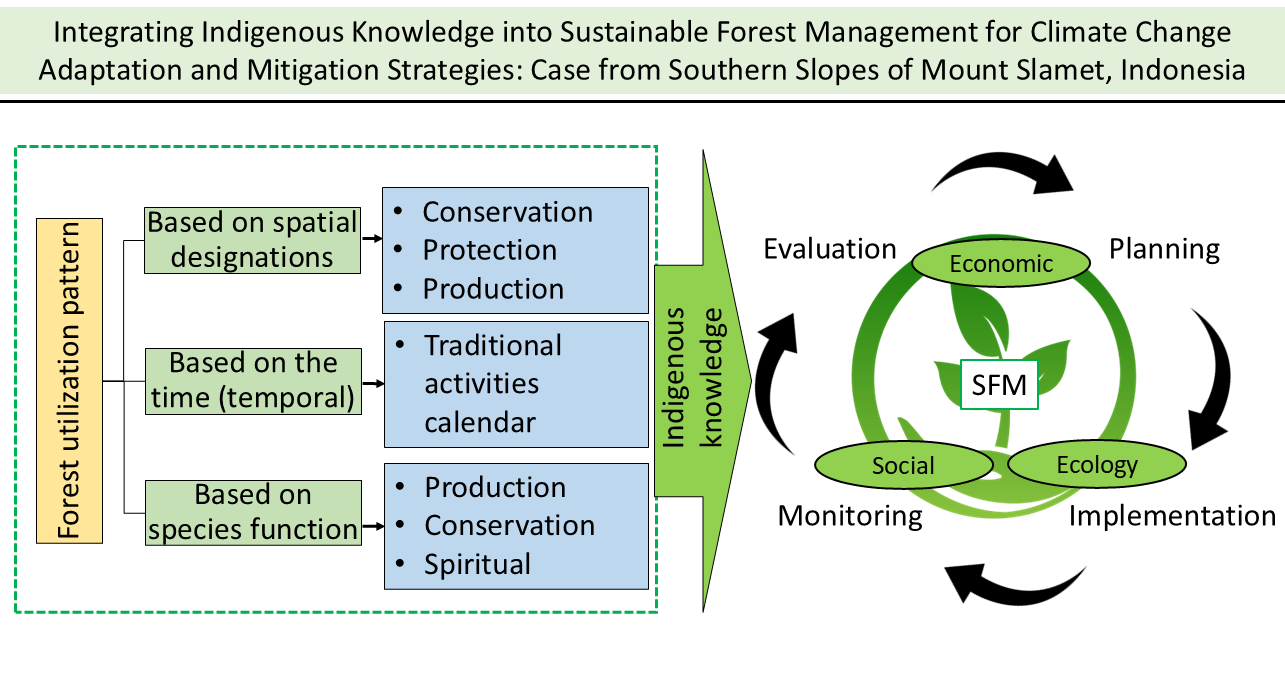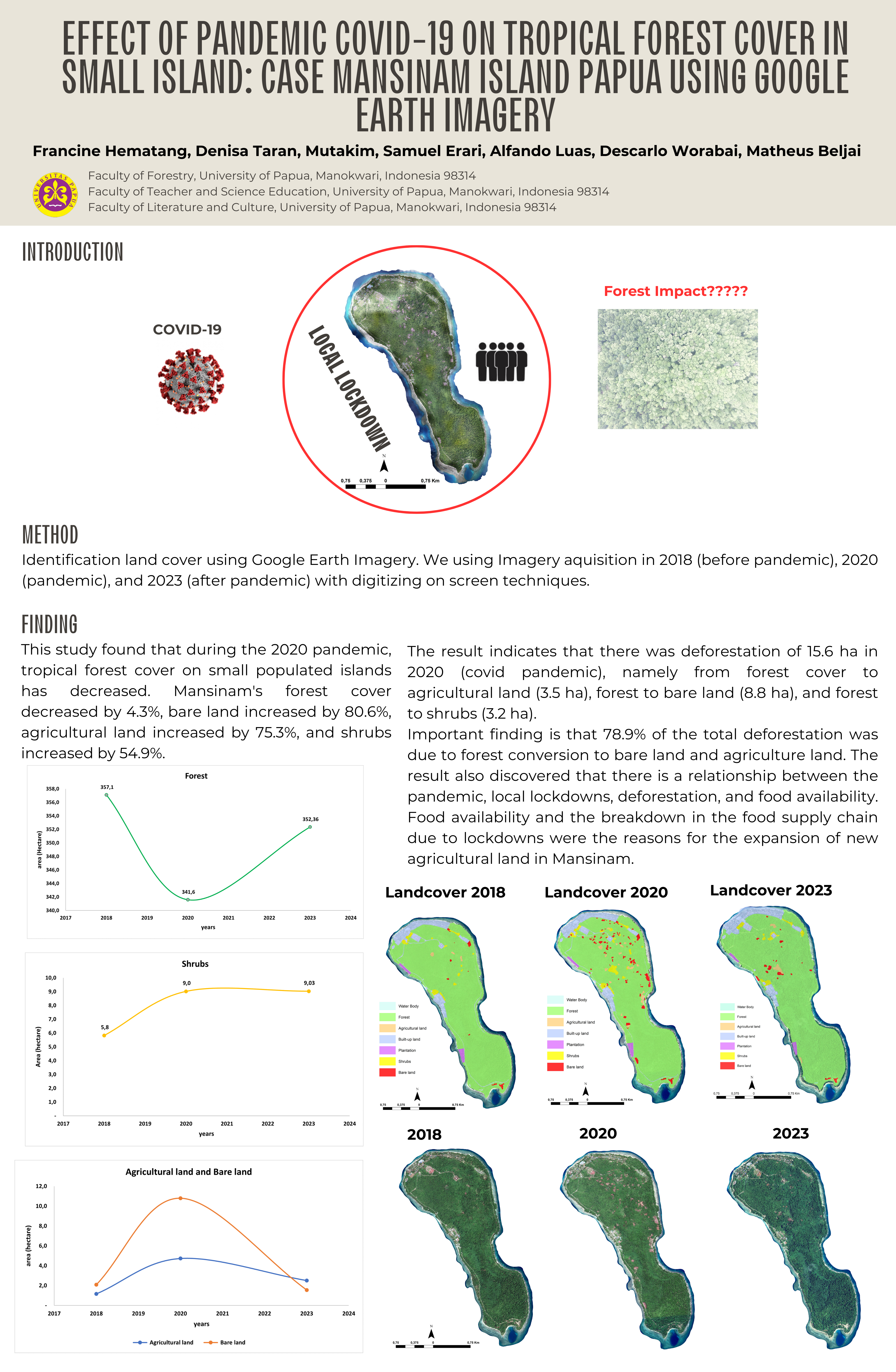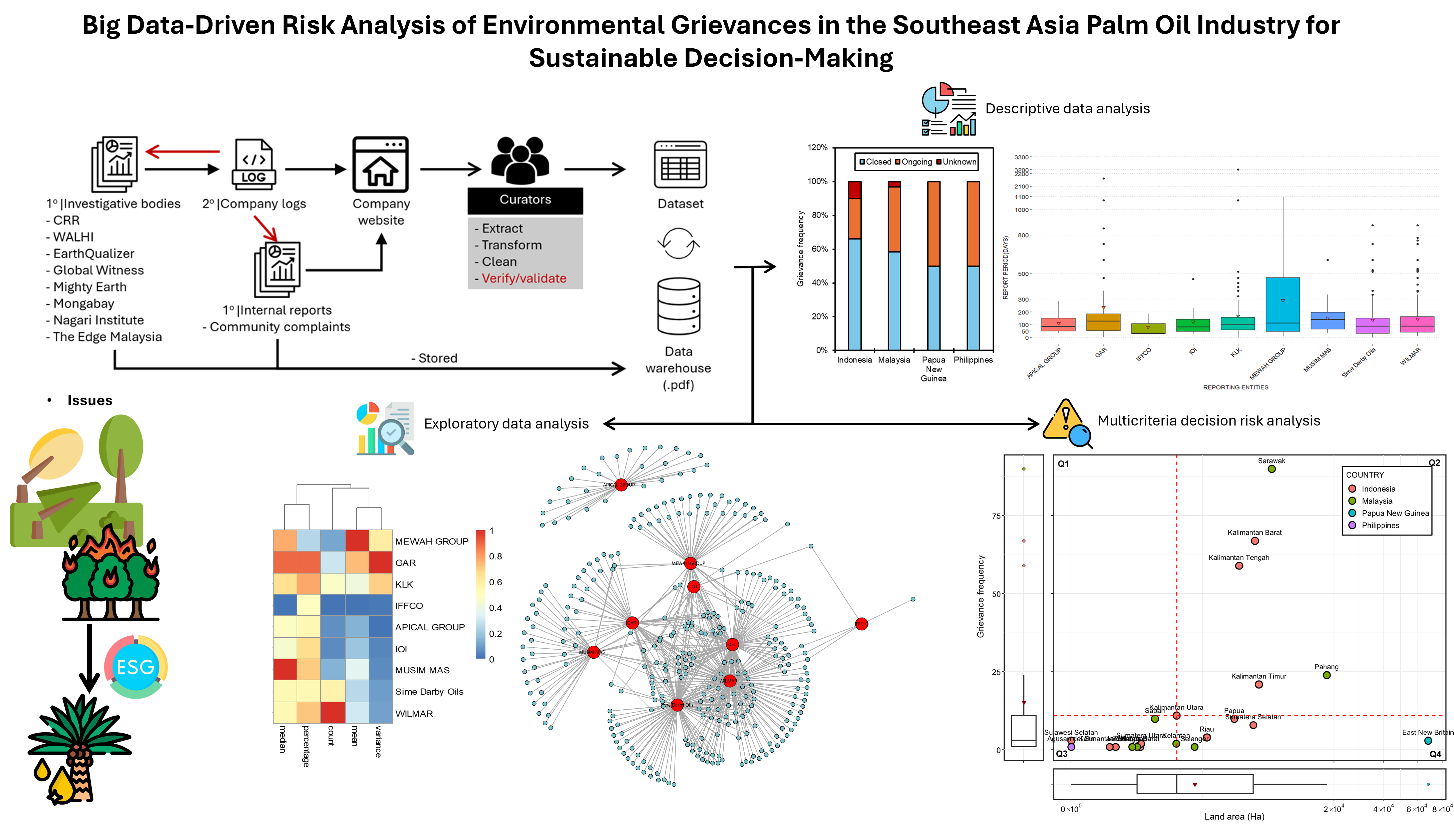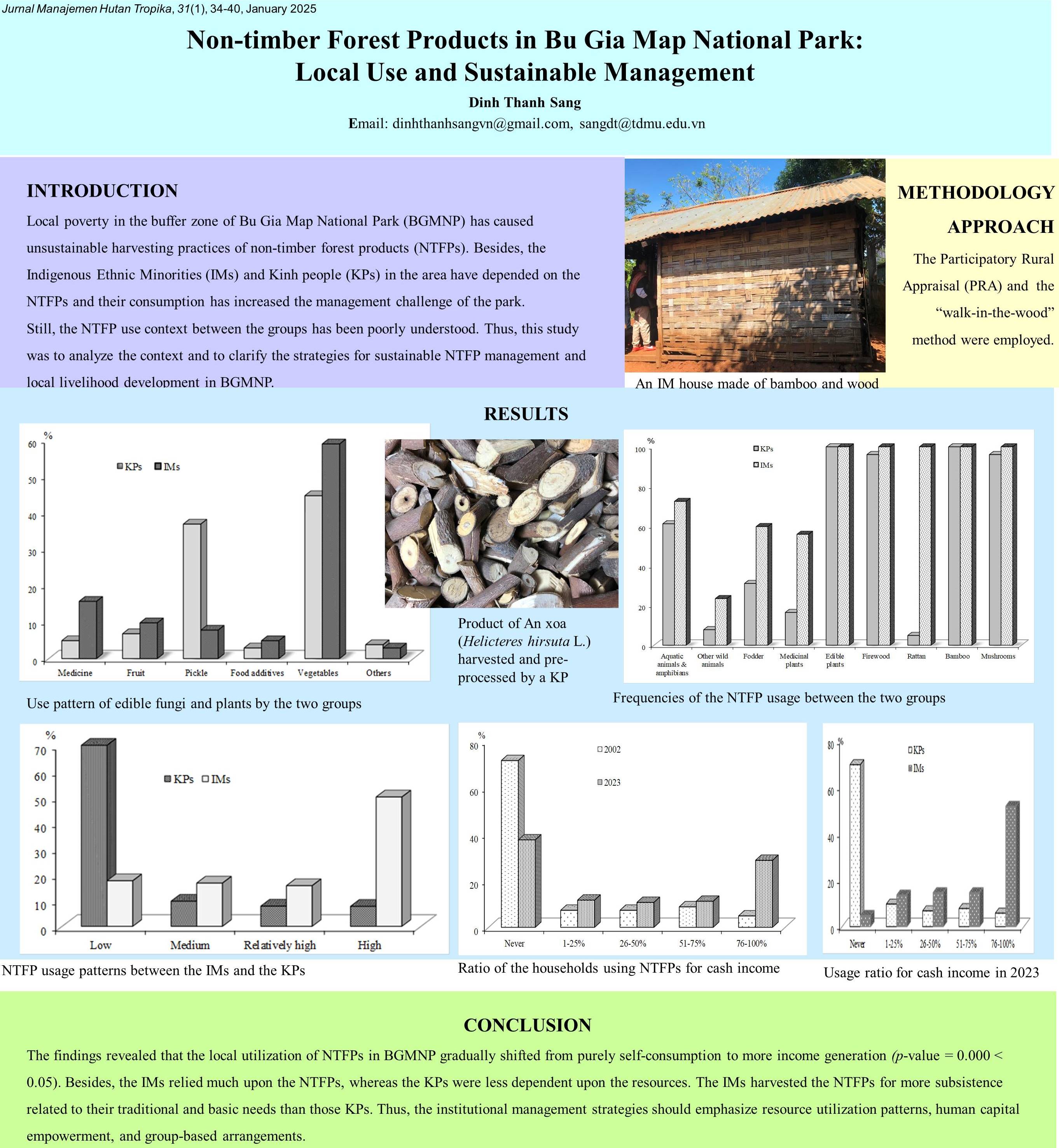Effects of Transfer of Right and Jurisdictional Boundary on Mining Reclamation Performance in East Kalimantan Forest Areas
Abstract
Mining is still considered to be an essential sector to gain national income and to provide energy supply. Forest Leasehold License (FLL) is a mechanism to accommodate the non-forestry sector, including mining development in the forest area. This license is a form of transfer of right given from Minister of Environment and Forestry to a mining license holder. Transfer of right by FLL contractual shaped jurisdictional boundary that is one of the obligations that has to be complied by FLL holder is to conduct mining reclamation. This study aimed to analyze the effects of FLL and its jurisdictional boundary on mining reclamation performance in East Kalimantan forest areas. It is a descriptive qualitative study based implemented the agency theory with the institutional approach. The study found that mining permit and FLL is a temporary transfer of right. The emerging problem in the FLL and its jurisdictional boundary related to asymmetric information and transaction cost caused moral hazards such as adverse risk selection of FLL holders by the principal, reclamation ignorance by the agent, and opportunism both from principal and agent. These agency problems affect FLL reclamation performance that just reached 41.35% over disturbed areas. Institutional challenges are due to the regulation gap creating a conflict of interest, budget and human resource constrain, cost center activity, and lack of economic incentive as well as lack of coordination among the government institutions. The research findings suggested inputs for institutional arrangement in terms of transfer of the right, including FLL reclamation process business, to improve its performance in the East Kalimantan forest area.
References
Ai-bin, L., Min, Z., & Ming-yin, L. (2009). Economic analysis and realization mechanism design for full cost of coal mining. Procedia Earth and Planetary Science, 1, 1686–1694. https://doi.org/10.1016/j.proeps.2009.09.259
Budiawan, A., Kartodihardjo, H., & Nurrochmat, D. R. (2015). Strategi tenurial pengelolaan hutan lindung: Studi kasus Hutan Lindung Balikpapan. Risalah Kebijakan Pertanian dan Lingkungan, 2(1), 9–16. https://doi.org/10.20957/jkebijakan.v2i1.10362
Chariri, A. (2008). Questioning the popularity of agency theory in accounting research. Jurnal Ekonomi dan Bisnis 14(1), 1–14.
Creswell, J. W. (2016). Research design: Pendekatan metode kualitatif, kuantitatif, dan campuran (terjemahan). Edisi 4. Yogyakarta: Pustaka Pelajar.
Dalal-Clayton, B., Dent, D., & Dubois, O. (2003). Rural planning in developing countries: Supporting natural re-source management and sustainable livelihoods. International Institute for Environment and Development. USA.
[EITI] Extractive Industries Transparency Initiative. (2016). Laporan EITI Indonesia 2016.
Feiock, R. C. (2007). Rational choice and regional governance. Journal of Urban Affairs, 29(1), 47–63.
Fischer, A., Peterson, L., Feldkötter, C., & Huppert, W. (2007). Sustainable governance of natural resources and in-stitutional change-An analytical framework. Public Administration and Development, 27, 123–137. https://doi.org/10.1002/pad.442
German, L. A., & Keeler, A. (2010). “Hybrid institutions”: Applications of common property theory beyond discrete property regimes. International Journal of the Commons, 4(1), 571–596.
Hein, J. I. (2019). Political ecology of REDD+ in Indonesia agrarian conflicts and forest
carbon. New York: Routledge.
Jensen, M., & Meckling, W. (1976). Theory of the firm: Managerial behavior, agency cost, and ownership structure. Jurnal of Financial Economics, 3(4), 305–360.
Kartodihardjo, H. (1998). Peningkatan kinerja pengusahaan hutan alam produksi melalui kebijaksanaan penataan institusi [dissertation]. Bogor: Institut Pertanian Bogor.
Kartodihardjo, H. (2006). Ekonomi dan insttitusi pengelolaan hutan: Telaah lanjut analisis kebijakan usaha kehu-tanan. Bogor: Penerbit Institute for Deveopment Economics of Agriculture and Rural Areas (IDEALS).
Maharani, R., Susilo, A., Sugiharto, S., & Fernandes, A. (2010). Revegetasi lahan bekas tambang batubara. Status riset reklamasi bekas tambang batubara. Samarinda: Balai Besar Penelitian Dipterokarpa.
North, D. C. (1990). Institutions, institutional change and economic performance. New York: Cambridge University Press.
Nugroho, B. (2011). Land rights of community forest plantation policy: Analysis from an institutional perspective. Jurnal Manajemen Hutan Tropika, 17(3), 111–118.
Ostrom, E. (1990). Governing the commons: The evolution of institution for collective actions. New York: Cam-bridge University Press.
Ostrom, E., Gardner, R., & Walker, J. (1994). Rules, games, and common-pool resources. Michigan: The University of Michigan Press.
Polit, D. F., & Beck, C. T. (2012). Resource manual for nursing research: Generating and assessing evidence for nursing practice. Wolters Kluwer Health, Lippincott Williams and Wilkins.
Schlager, E., & Ostrom, E. (1992). Property right regime and natural resources: A conceptual analysis. Journal Land Economics, 68(3) 249–262.
Schmid, A. A. (1987). Property, power, and public choice. An inquiry into law and economics. 2nd ed. New York: Praeger.
Subarudi, Kartodihardjo, H., Soedomo, S., & Sapardi, H. (2016). Kebijakan resolusi konflik tambang batu bara di Kawasan Hutan di Kalimantan Timur. Jurnal Analisis Kebijakan, 13(1), 53–71.
Theesfeld, I., & Jelinek, L. (2017). A misfit in policy to protect Russia's black soil region: An institutional analytical lens applied to the ban on burning of crop residues. Land Use Policy, 67, 517–526. https://doi.org/10.1016/j.landusepol.2017.06.018
Zhang, J., Rao, Y., Geng, Y., Fu, M., & Prishchepov, A. V. (2017). A novel understanding of land use characteristics caused by mining activities: A case study of Wu'an, China. Ecological Engineering, 99, 54–69. https://doi.org/10.1016/j.ecoleng.2016.11.026
Zubayr, M. (2014). Implementasi kebijakan penggunaan kawasan hutan untuk pertambangan: Perspekstif hub-ungan principal-agent [dissertation]. Bogor: Institut Pertanian Bogor.
Zubayr, M., Darusman, D., Nugroho, B., & Nurrohmat, D. R. (2014). Peranan para pihak dalam implementasi kebijakan penggunaan kawasan hutan untuk pertambangan. Jurnal Analisis Kebijakan Kehutanan, 11(3), 239–259.
Authors

This work is licensed under a Creative Commons Attribution 4.0 International License.
Jurnal Manajemen Hutan Tropika is an open access journal which means that all contents is freely available without charge to the user or his/her institution. Users are allowed to read, download, copy, distribute, print, search, or link to the full texts of the articles in this journal without asking prior permission from the publisher or the author. This is in accordance with the Budapest Open Access Initiative (BOAI) definition of open access.








